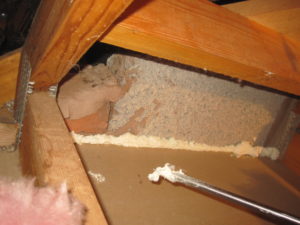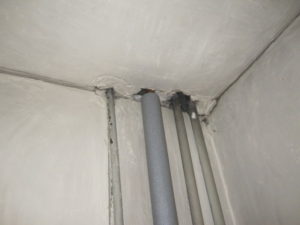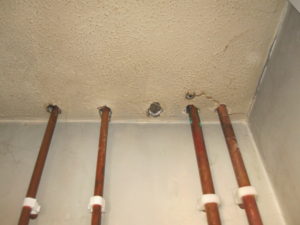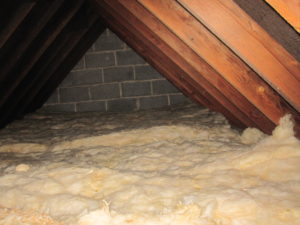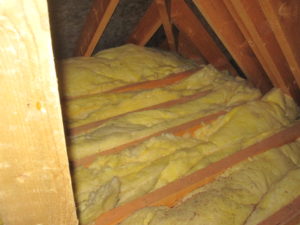Problem Loft Hatches
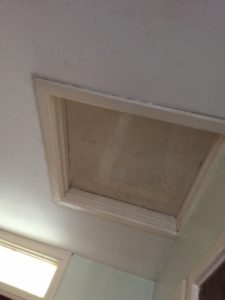
Note the blackening between the architrave and the ceiling, this indicates draughts are entering there, it should be caulked. The trap itself is dirty and there is a strong probability that it is not properly insulated and it is not sitting on its door stops again draughts are coming in there too, simple draught stripping will cure the problem but the top edge of the stops must be cleaned well first.
More on loft traps hatches and doors here
Airing Cupboards
Airing cupboards often have gaps, cracks and holes around pipes, these should be sealed around and simplest the way to do this is with acrylic caulk.
General advice on lofts
They should be well-ventilated and well-insulated (in general the ceiling rafters should not be visible as insulation should be 300mm deep)
Like this:
Not like this
Highlighting some of the problems encountered at and above ceiling level in dry-lined homes
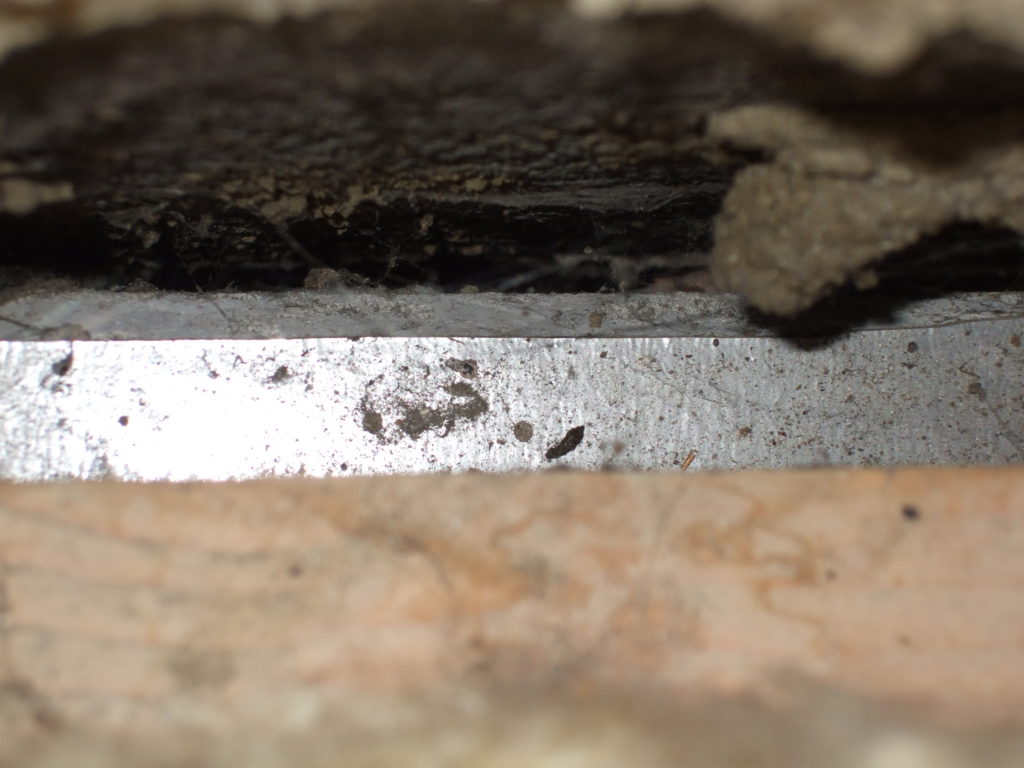
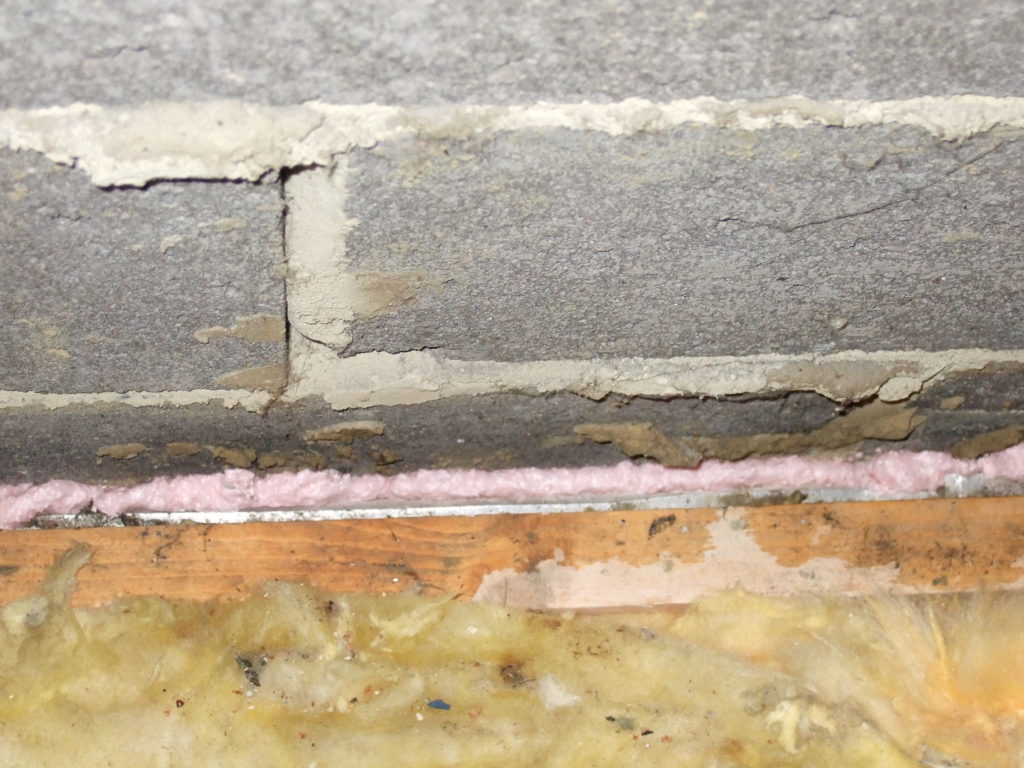
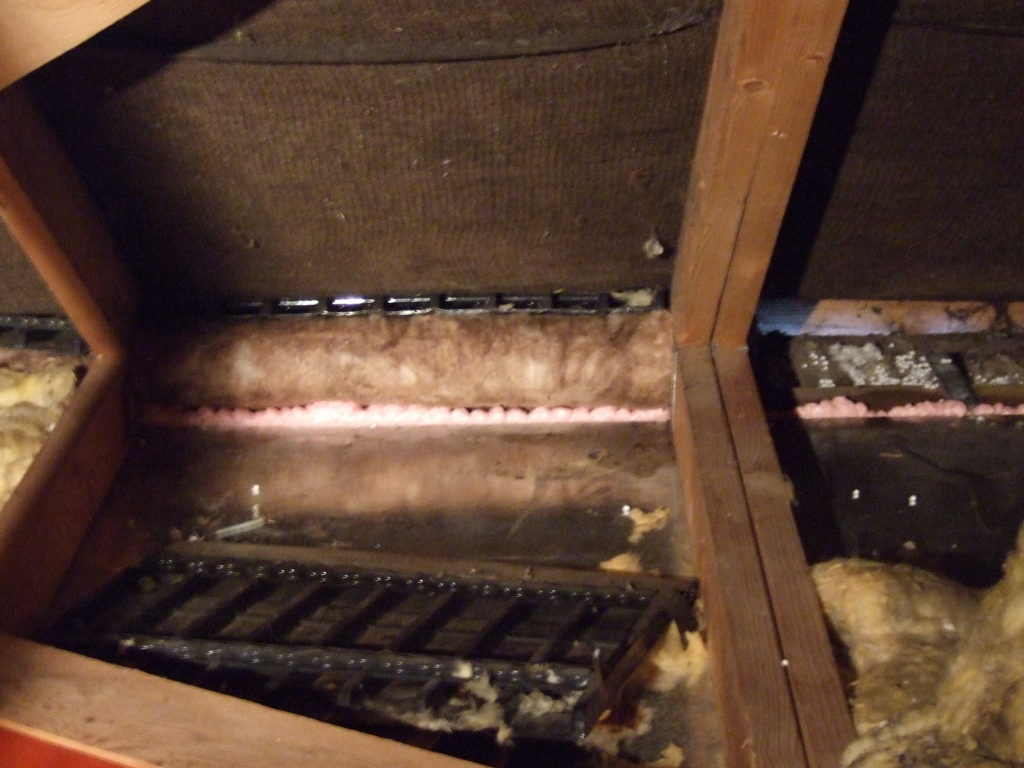
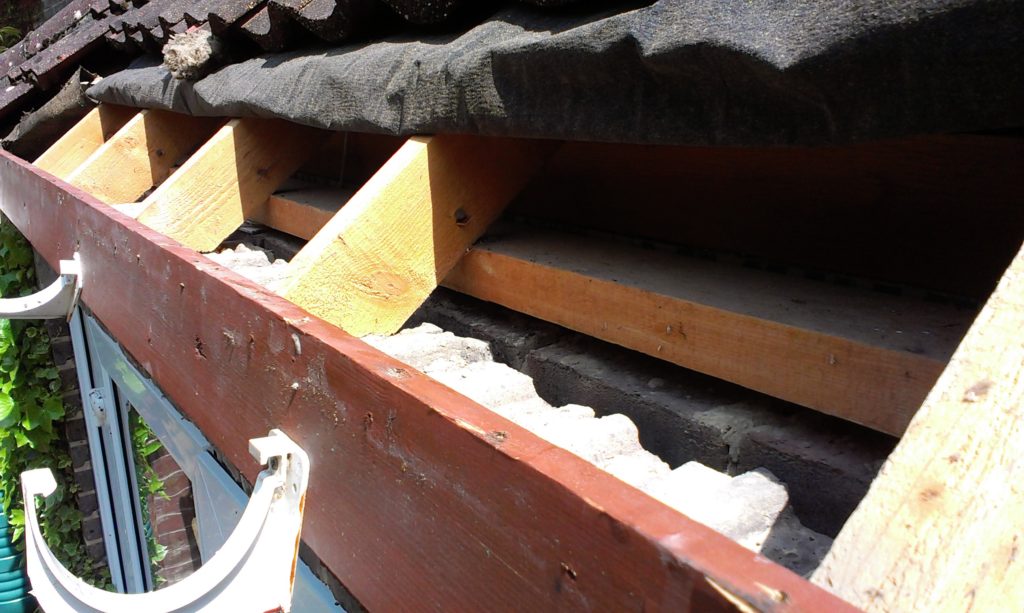
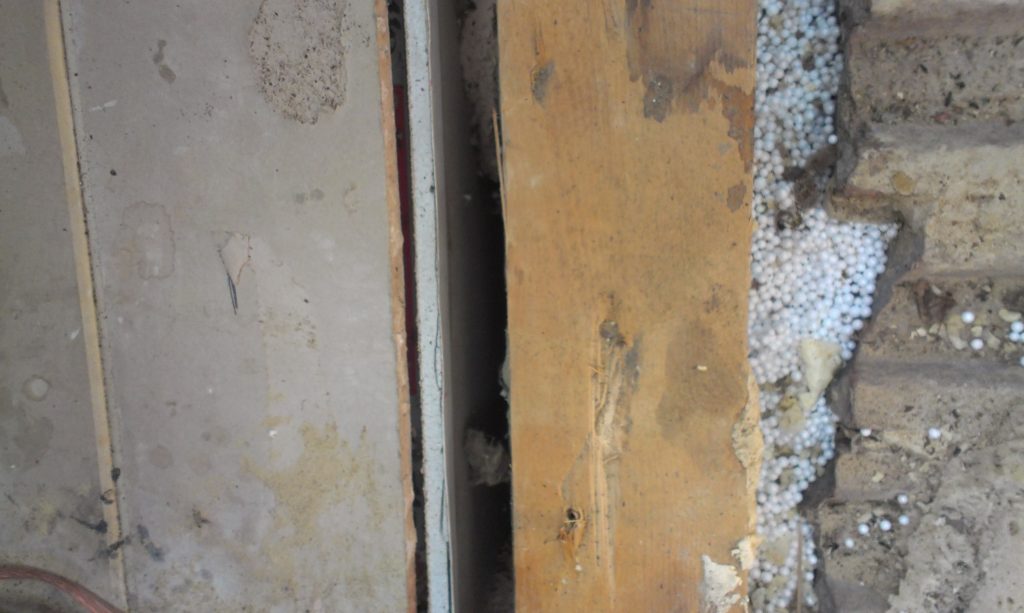
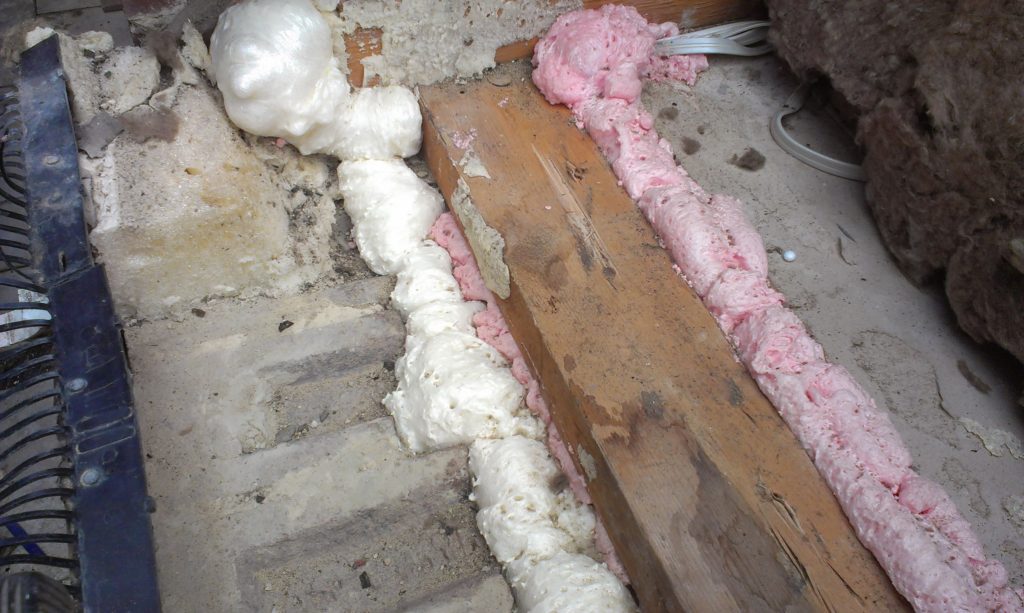
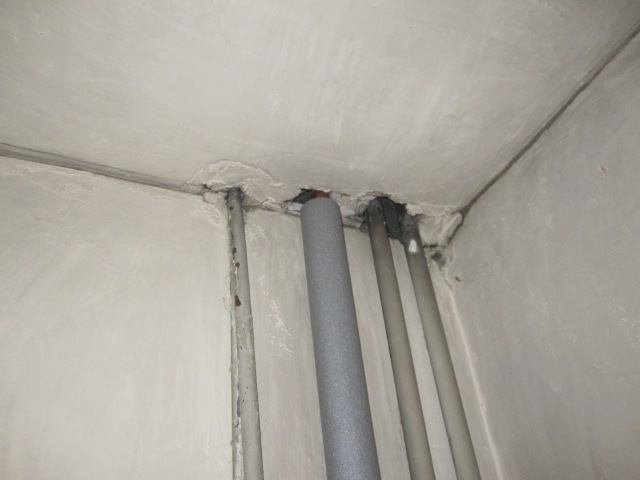
Ceiling roses should be inspected by unscrewing the rose and filling and sealing round the cable entry points is allowed with acrylic sealant. typically decorators caulk works fine.
Any other wires that pass through the ceiling should be sealed around too, possibly from above.
Then inspect any pipe boxings or soil pipe casing and ensure they are air sealed too.
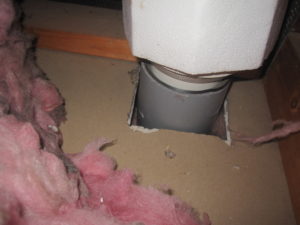
Typically in dry-lined homes, there is a gap at the edge of a ceiling which leaves an open path for a lot of heat to escape from behind the plasterboard linings.

A simple fix
